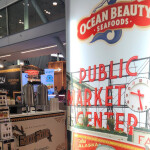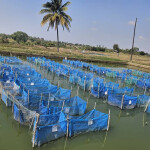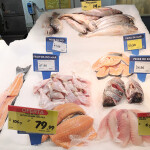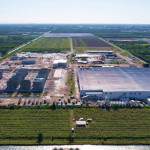The 2010 International Seafood and Health Conference & Exhibition kicks off in Melbourne, Australia, on Saturday, and Roy Palmer is raring to go. One of the event organizers, Palmer is excited about the opportunity to bring together seafood and health professionals to advance seafood’s profile as the world’s healthiest protein. As head of industry training and education for the Australian Seafood Cooperative Research Centre, CEO of Seafood Experience Australia and a SeafoodSource blogger, Palmer understands how difficult it can be to educate consumers about seafood, especially with all the misinformation surrounding it.
This year’s five-day conference builds on the first two seafood and health conferences held in Bergen, Norway, in 2008 and in Washington, D.C., in 2005. This year’s event, however, is a little different. This week, I talked to Palmer about the event and what its participants can expect.
This is part one of a two-part interview. Part two will run on Thursday.
Hedlund: What do you hope participants get out of this year’s conference?
Palmer: We’ve approached the program in a different manner to previous conferences, expanding it to other areas. There are three themes: health, nutrition and medical science and research; food security and sustainability; and human behavior and communications. Our research suggested that we needed to do more than just cover the scientific studies on fish, fish oils, etc. The aim is still to promote the exciting independent scientific work but also to cover the misunderstandings about seafood sustainability and the opportunities that the oceans give us. Getting many key people together for such an event is the most important and exciting opportunity for the industry.
Additionally, when planning the event, we looked at how the seafood industry communicated all of these issues to the public, and we decided that we did a poor job. So as a value-add, we have created the “Wonders and Opportunities of our Ocean.” This is being advertised to the public as a great activity for the whole family, with fantastic food and wine and lots of education on well being, seafood, aquaculture and career opportunities. There is the opportunity to meet international chefs in the “celebrity kitchen arena,” where chefs have been paired with some of our expert nutrition conference speakers.
To take advantage of the rare opportunity of having so many international experts in Melbourne, we have also planned a public forum where a well-known radio interviewer will interview them and allow questions from the public. There is a lot going on.
What do hope you participants learn?
The main take-away I believe will be that we have much to do and that the only way forward is through collaboration across all sectors of the industry internationally. Hopefully, we will form stronger relationships with government, researchers, academics and others in the international seafood industry. No doubt everyone coming will have their own take on this, and we hope they will share that with us.
The whole of the seafood industry needs to take stock of where it’s at. Essentially, there are major discussions going on in the world about food. And, in some quarters, the future of the seafood industry — aquaculture — is not even getting a mention, and that is something we must all address. With the world being 73 percent ocean producing just over 2 percent of the world’s food highlights the opportunity.
In terms of the way seafood is perceived by nutritionists, dieticians and other health professionals, has a lot changed since the last International Seafood and Health Conference in 2008?
I guess you would need to ask a nutritionist, dietician or a health professional that question. But from what we have experienced in Australia, and I believe the same applies in the United Kingdom and United States, the cashed-up conservation groups have been spreading their message of gloom and doom, and many health professionals have listened. Governments who control sustainability and the industry have not pushed hard enough to establish their messages, and my feeling is we are on the back foot defending.
The question on everyone’s lips when asked about eating seafood is the risk factor. How have we allowed that negative to take hold? The Food and Agriculture Organization will be bringing people up to date with their Risk vs. Benefits Expert Working Group at the conference and it is important that industry ensures this is promoted strongly.





